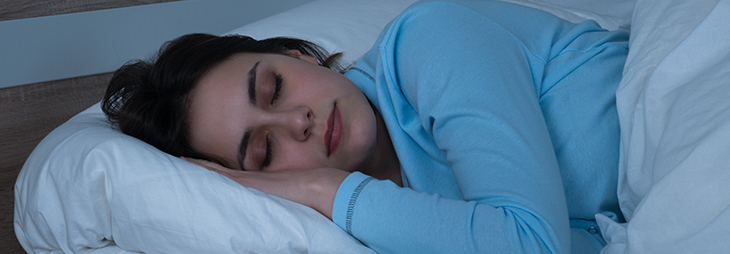
Sleep is an important aspect of a healthy lifestyle – without restful sleep, our bodies are unable to fully recover from the daily grind. It’s essential to renew our bodies and minds as we move about our fast-paced lives. But perhaps you’ve struggled to get a full night’s rest and have been searching for how to improve sleep, so Arkansas Heart Hospital’s Senior Clinical Director of Ancillary Services, Jason Henry, has created a simple list of tips you can start following immediately.
The first thing to know is not everyone requires the same amount of sleep to feel rested and alert. Some feel recharged after just five or six hours, while others need eight to 10. The most important step when it comes to sleeping well is to create a routine. Set your internal clock by going to sleep and waking up at the same time each day. It’s also important to set aside time away from your electronics before going to bed. Try to stop looking at phones, tablets, computers and television at least half an hour before going to bed.
Here are 6 tips for how to improve sleep:
- Stick to a sleep schedule. Humans are creatures of habit. Regulate your body’s internal clock by establishing a routine sleep schedule that allows for at least seven hours of sleep every night.
- Practice a relaxing bedtime ritual. Meditation, breathing exercises, aromatherapy, light stretching or a hot bath can help provide “closure” to stresses or worries from the day.
- Be mindful of what you eat or drink. Don’t go to bed hungry or overly full. Avoid heavy meals within two hours before bedtime and nicotine, caffeine and alcohol for up to five hours. Although alcohol may make you feel sleepy, it can disrupt the quality of your sleep.
- Create a restful environment. Make your bedroom a quiet, dark, cool and comfortable space. Turn off and tune out from light emitting electronics and TV prior to going to bed.
- Exercise daily. Regular exercise can help promote better sleep, but avoid vigorous exercise close to bedtime.
- Avoid daytime naps. If you do choose to nap, limit yourself to 15-20 minutes and avoid napping late in the day.
Some who are unable to get a good night’s sleep may suffer from sleep apnea. Sleep apnea is an obstruction of the airway when you get into deep sleep. In some people, once relaxed their tongue falls back or the airway collapses down and blocks breathing. Once their breathing is inhibited, it leads to other problems that prevent restful sleep. Sleep apnea patients are constantly waking up simply because their body is just reminding them to breathe. Luckily, sleep apnea can easily be treated with a CPAP machine. Arkansas Heart Hospital offers sleep studies by referral – ask your doctor for one today.
If you’re interested in finding more information on how to live a healthier lifestyle, check out our heart health tips here.